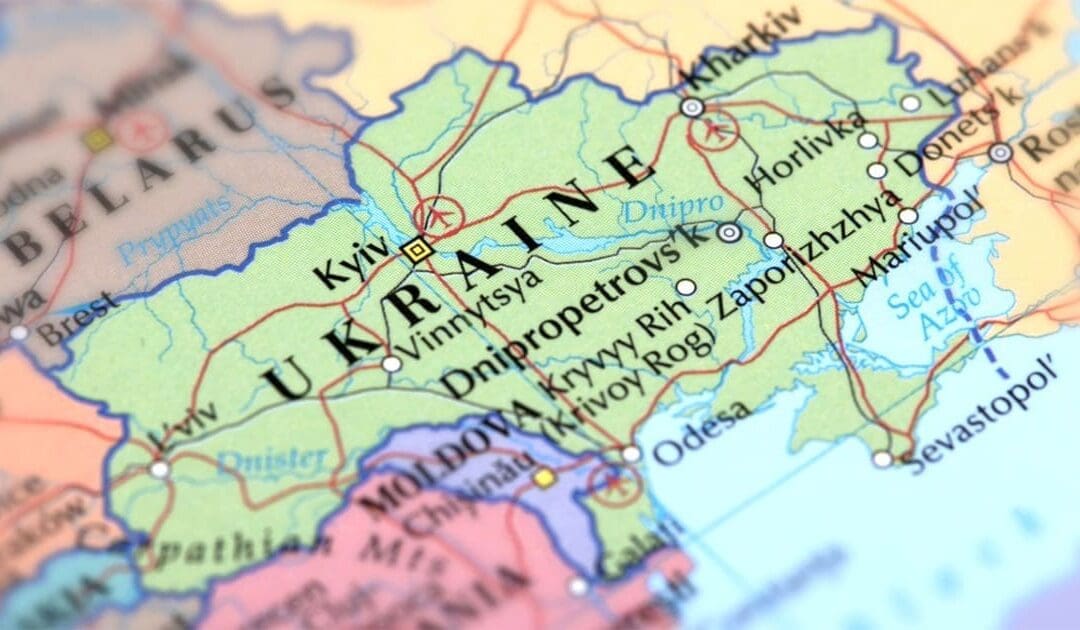In a webinar hosted on March 22, thought leaders and faculty from University of Denver’s University College explored the implications of the Russian invasion of Ukraine. Moderator Arianna Nowakowski and panelists Jack Buffington, Eric Fattor, and Richard Staynings adeptly navigated complex topics pertaining to the short-term and long-term consequences on security, supply chain, media, and globalization.
Richard Staynings, a globally renowned thought leader and advocate for improved cybersecurity as well as instructor in the Information and Communications Technology program at DU, highlighted the need for institutions and organizations to adequately prepare for cyberattacks.
“The government is not going to protect everything, but they will help,” he explained. “Institutions need to protect themselves and follow a decent cybersecurity framework, including incident response, to minimize the impact.”
This led to a discussion about whether cyberattacks are now viewed as an act of war or aggression, and whether such an event would prompt the U.S. or NATO to enter into a conflict. An audience member, Aaron de Los Reyes, inquired about local and regional institutions such as universities preparing citizens to support local hospitals, schools, government, and local businesses in the event of a regional cyberattack. Events like this webinar, the panelists discussed, help create open and transparent dialogue on these important topics.
In addition to cyberattacks, disruptions to the supply chain need to be closely monitored, particularly given the global nature of supply chains, said Jack Buffington, academic director for the Supply Chain Management program at the University of Denver.
“What’s not getting enough attention is the supply war is being fought between Russia and Ukraine,” said Buffington. “That supply chain being disrupted…really scares me.”
This prompted a dialogue about near-sourcing, and whether people are willing to bear the higher costs that come with local supply chains opposed to the current state of a more interdependent, global chain.
“Corn, wheat, barley – these are staples from both Russia and Ukraine, which is a fertile farming region,” explained Buffington. “Africa is highly dependent on these items from this part of the world…further exacerbating the crisis happening in that part of the world. Africa is facing droughts, a shortage of lifeline when it comes to food, on top of the challenges related COVID.”
The costs of war — at a global scale — was a key topic of conversation, as the panel weighed the collateral effects of any economic pressure applied to Russia.
“Imposing punishment on Russia and the cost of imposing that – do we want to make sacrifices?” Asked Eric Fattor, a scholar of international security, political theory and the politics of global media as well as instructor in the Global Community Engagement program. “Shortages in certain essential products is a trade-off when economic pressure is applied to affect a particular political end.”
In addition to supply chain and economic repercussions stemming from the Russian invasion of Ukraine, the crackdown on media has also come into the spotlight, along with the rise of social media. Forbes recently posited that the invasion is the first “social media war,” with live streaming and up-to-the-minute coverage through social media platforms creating a transformational element of conflict. Fattor addressed what the democratization of content creation means for conflicts moving forward.
“With print and broadcast media heavily regulated, you’re left with a heavier reliance on social media,” Fattor said. “However, those platforms are disabling functionality within Russia itself, for example Google will not support systems in Russia as a way to punish and pressure the government. [Technology] is being wielded as a weapon, including the ability to access it.”
The panelists and audience members collaborated on a list of reliable resources to keep up-to-date on the war, stressing the importance of critically assessing sources in an age of disinformation. Key resources cited were primarily global news outlets, including France 24, The BBC, Jerusalem Post, PBS Frontline, and The Moscow Times, an independent Russian news outlet currently operating outside of Russia.
Watch the full webinar below or tune in to our Vimeo channel!

